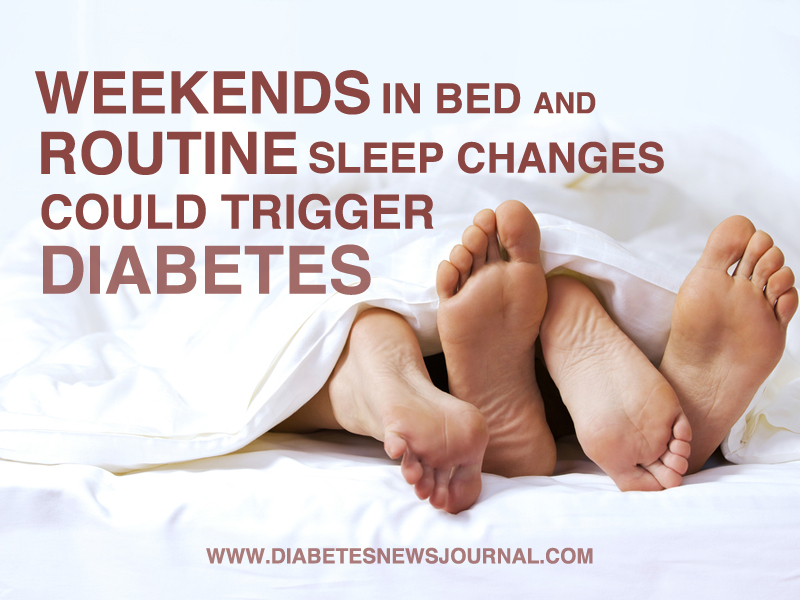In a new study by the Journal of Clinical Endocrinology & Metabolism, sleep cycle changes and ocasional lie-ins on weekends may trigger diabetes.
The new study reveals that when routine sleep changes, the chance of getting diabetes and heart disease increases. In the study, 447 men and women aged 30 to 54 who worked at least 25 hours a week outside the home were tested. Each one of them had a wristband that recorded their sleep and movement 24 hours a day for a week. The results showed that nearly 85 percent of the participants slept longer on their days off than on workdays; the rest woke up earlier on their days off than on workdays.
Scientists said that shift workers were more likely to develop metabolic syndrome, coronary heart disease, and type 2 diabetes than employees with regular daytime shifts.
This link between what the researchers called “social jetlag” and the health risk factors persisted even after adjusting for other measures of sleep and lifestyle behaviors, such as physical activity and calorie intake.
“Social jetlag refers to the mismatch between an individual’s biological circadian rhythm [body clock] and their socially imposed sleep schedules. Other researchers have found that social jetlag relates to obesity and some indicators of cardiovascular function,” study author Patricia Wong of the University of Pittsburgh said in a news release from the Endocrine Society.
Learn more about Diabetes: http://bit.ly/1jk6TKK
Read full article: http://bit.ly/1X0tM7K
Note: Diabetes News Journal is strictly a news and information website about the disease. It does not provide medical advice, diagnosis or treatment. This content is not intended to be a substitute for professional medical advice, diagnosis, or treatment. Always seek the advice of your physician or other qualified health provider with any questions you may have regarding a medical condition. Never disregard professional medical advice or delay in seeking it because of something you have read on this website.


